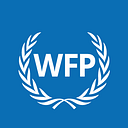EvalX rises to the occasion
WFP EvalXchange 2021 delivered a rich line-up of events for the second virtual festival of learning
More than 350 participants from 17 different UN agencies, along with governments, NGOs, civil society and independent consultancies joined WFP’s Office of Evaluation for the return of EvalXchange.
The series, encompassing a trio of events on 18 November, 25 November and 2 December, connected participants to share lessons aimed at improving the practice and utility of evaluation in the context of the 2030 Agenda and the COVID-19 pandemic.
“EvalXchange has become richer over the past two years resulting in insightful, vibrant and well-appreciated discussions on topical issues in evaluation,” said Andrea Cook, Director of Evaluation at WFP.
“The timing of this year’s event was particularly important as it took place in the same week that the WFP Executive Board met to discuss a new Strategic Plan, identifying evidence as a key enabler of WFP’s work,” she added.
The Office of Evaluation will release in 2022 an updated WFP Evaluation Policy and Strategy, reaffirming the role of evidence in improving performance and results, while contributing to knowledge and learning. As the toolkit of evaluation approaches expands globally, the event topics featured at EvalXchange 2021 will be central to the updated WFP Evaluation Policy and Strategy.
The EvalX series started on 18 November with an engaging conversation on Breaking ground in developmental evaluation for real-time decision making. The session focussed on how developmental evaluation approaches can balance the demand for flexible, real-time evidence generation, with the need for systematic examination for accountability and learning.
Lessons and experiences from recent developmental evaluations carried out by WFP and the United Nations Population Fund set the scene, followed by a presentation from Michael Quinn Patton and engaging conversations by panellists and participants.
Go to the event page, including visual notes, session recording and more.
On 25 November, rich discussions continued in a session titled, Evaluation in every nation — strengthening capacities to achieve the SDGs.
Seven years since the 2014 UN Resolution to support capacity building for the evaluation of development activities at the country level, there is a renewed sense of urgency to strengthen national evaluation capacities (NECD) to regain progress towards the SDGs and help realise national developmental objectives in the wake of COVID-19.
The event showcased the diverse NECD work initiated by WFP across countries and featured initiatives by two of WFP’s partners, the Global Evaluation Initiative (GEI) and CLEAR-AA, with the aim of exploring future activities in building a strong culture of evaluation in every nation.
Go to the event page, including visual notes, session recording and more.
On 2 December — during the 16 days of activism campaign against gender-based violence — colleagues from across WFP functions joined forces to explore the role of impact evaluation in generating evidence for gender equality.
The event followed the work of WFP and partners in developing a series of impact evaluations to deliver robust evidence in gender and cash-based transfer programming.
In her opening remarks, Brenda Behan, Director of the WFP Gender Office, said women have a powerful role to play in global food systems and need to have better access to financial resources, information and services to do so.
She said: “Beyond the idea of levelling the playing field between men and women and boys and girls, WFP and its partners need to utilise an evidence-based approach to implement policies and interventions and help economically empower women to transform their roles in food systems.”
The session included thought-provoking contributions by panellists Sarah Khan (Assistant Professor of Political Science, Yale University), Astrid Devalon (Project coordinator, Cash-Based Transfers, WFP), John Loeser (Economist, Development Impact Evaluation, DIME, World Bank) and (Felipe Dunsch, Impact Evaluation Officer, WFP).
Go to the event page, including visual notes, session recording and more.
All three EvalXchange sessions underscored the need to evaluate and build evaluation capacities, aligned with addressing growing global challenges such as food security and gender inequality.
Highlighting this aspect in her closing remarks, Andrea Cook said the 2021 edition of WFP EvalXchange presented an opportunity to reflect on the how and why of commissioning, managing, facilitating and using evaluations more effectively to tackle these global challenges.
